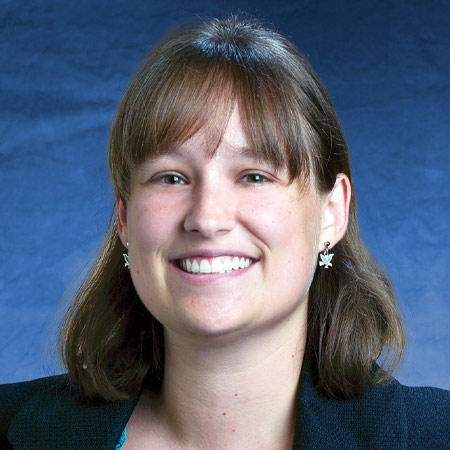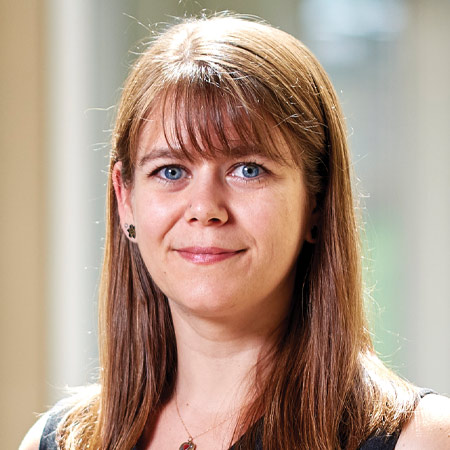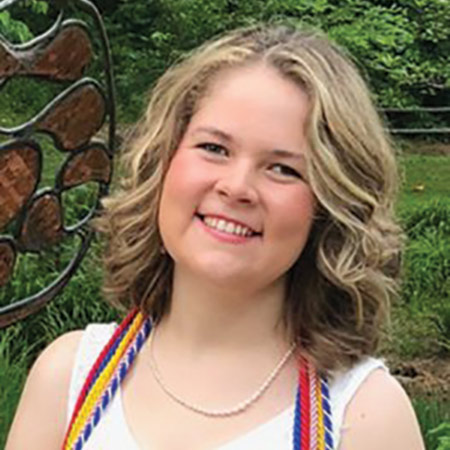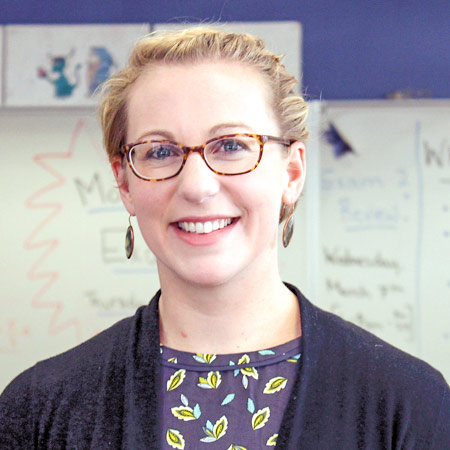As COVID-19 spread to Tennessee, TCE joined UT in prioritizing human health to work remotely in quarantine. But, even though the global pandemic shook up the way faculty, staff, and students were able to finish out the spring semester, the community proved to be resilient in the face of change.

Senior Lecturer Jenny Retherford (CEE)
on the effect on senior design projects:
“Nothing will replace the events that were missed or the final pats on the back from mentors and clients, but students did a great job of pivoting to share their results virtually. While it was a challenge, the win here extends to the fact that these projects did not fall away once students couldn’t meet in their groups.
I think in the long-run, being able to show that they managed to graduate despite a global pandemic wreaking havoc on society will actually make them better engineers, because in the real world there are many times when you are forced to adapt and problem solve quickly.”

Southern Company Faculty Fellow Jamie Coble (NE)
on using Slack for her classes:
“The Slack workspace for our class has given us a space to extend academic conversations outside the Zoom classroom and has also given everyone opportunities to share pet photos, memes, and general check-ins. The department Slack has channels for students, researchers, and faculty to seek and give help on all kinds of technical topics, from general topics to specialized programming languages and computational tools.
Opening new channels of communication has helped me get to know my students and others in the department in ways I wouldn’t have otherwise; it’s a welcome bit of connectedness in a time of isolation.”

Sophomore Madison Allen (NE)
on her department’s response:
“The Tickle College of Engineering and especially the Department of Nuclear Engineering have been especially helpful at providing the necessary accommodations and visual aids for me to be successful. This exposure to Zoom was especially helpful during my transition to online classes paired with my assistive technology. Regardless of the pandemic conditions, this technology has been outstanding to help eliminate barriers for visually impaired students whether the classes are online or on campus.”

Lecturer/Research Assistant Professor Courtney Faber
(Cook Grand Challenge Honors program):
“With the need to rapidly transition online in the spring, I, like many others, jumped into action and problem-solving mode. I was teaching three courses that each had their own set of challenges related to moving online. For my largest course, EF 158, I was fortunate to work as part of a great team of teaching assistants (primarily undergraduate) and other faculty members (Chris Pionke and Kevin Kit). After the announcement was made, we were able to develop an initial plan and talk to each section of the class, providing reassurance to the students and answering their questions. Throughout the rest of the semester, our teaching team communicated and collaborated primarily through Slack, Google Drive, and Zoom. We were already using Slack and Google Drive, but these two platforms became even more important for day-to-day communication, encouragement, and support. We faced many new and unexpected challenges, but were able to overcome them by working together and learning from one another. I am forever grateful to this teaching team’s effort and determination to support our students and each other.”
